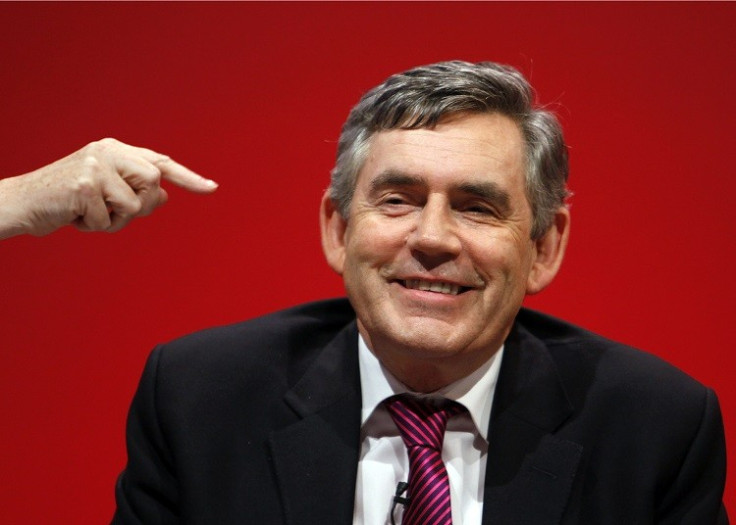Central Banks Cling to Gold Reserves Despite Price Falls After Calamitous Gordon Brown Sell Off

Gordon Brown's spectre continues to hang over national gold reserves as it emerges central banks have lost $400bn through hanging onto the precious metal despite its falling value.
Research by broker Banc de Binary found that many are nervous about making any move to sell their gold in the wake of the former UK prime minister's clumsy sell-off of his own country's holding.
Brown sold 395 tonnes of Britain's gold reserves between 1999 and 2002 when the market was at its lowest, something for which he has been heavily criticised.
"Gold prices have been on a downward trajectory since their peak in August 2011, after ten years of virtually uninterrupted growth," said Oren Laurent, chief executive of Banc De Binary.
"Unfortunately for the central banks that still have very large holdings in gold, knowing when to sell off a multi-billion-dollar gold reserve is an extremely difficult proposition, as Gordon Brown discovered to both his and the British taxpayer's cost."
The US Federal Reserve has seen the value of its more than 8,000 tonnes of gold plunge to $327bn over the year, from $433bn. The Bank of England's reserves are down to $12.5bn from $16.5bn over 2013.
Laurent argues that things will only get worse as the global economy recovers and the monetary stimulus taps are turned off.
"The prospect of the Federal Reserve tapering its Quantitative Easing programme could drive gold prices even lower, meaning even greater losses for central banks with significant holdings in gold," he said.
"In this climate, some commentators believe it is difficult to justify central banks holding such large reserves of a low-yielding asset that has fallen in price for two straight years, and may continue to fall."
A Kitco Gold Survey found that 14 out of 25 analysts asked thought gold prices would drop because improving economic data from the US increased the risk of the Fed pulling the plug on its $85bn a month bond-buying stimulus.
© Copyright IBTimes 2025. All rights reserved.






















